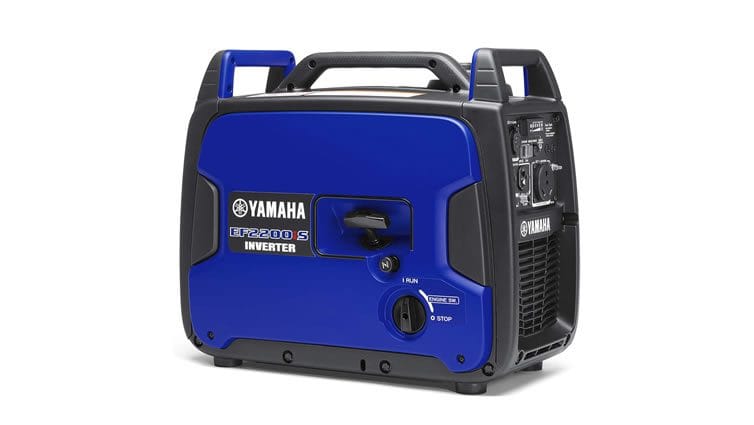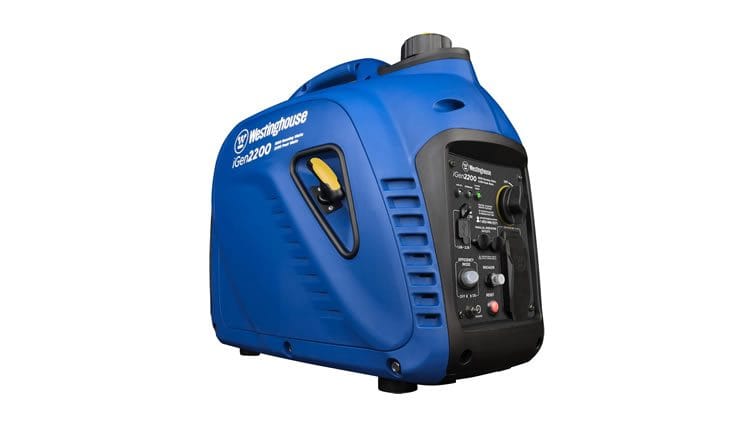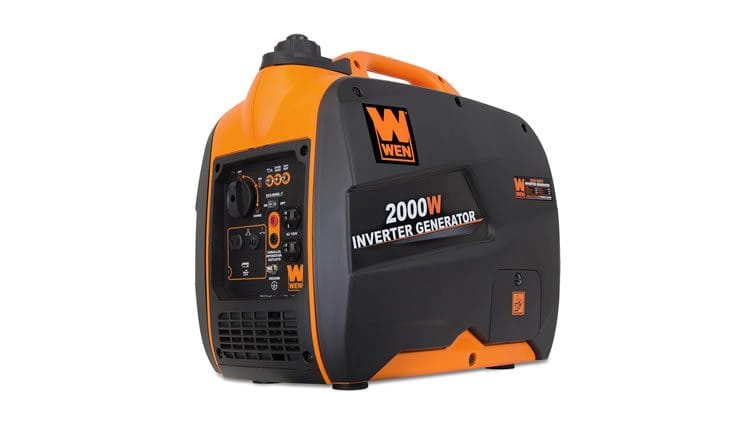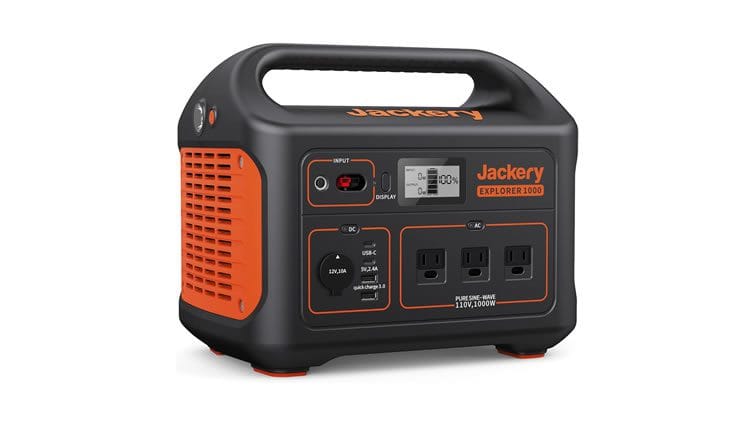Quiet RV Generator Overview
A quiet RV generator is an absolute game-changer for RV enthusiasts who crave the tranquility of the open road without the constant hum of a noisy engine. Unlike traditional generators that can disturb the peace, a quiet RV generator operates at significantly lower noise levels, providing essential power while allowing you and your neighbors to enjoy a serene camping environment. Designed with soundproofing, advanced inverter technology, and efficient engines, these generators give you the freedom to power your devices, charge batteries, and enjoy modern conveniences—all without disrupting the natural sounds around you.
Choosing the right quiet RV generator isn’t just about lowering noise; it’s about enhancing the entire RV experience. These generators are built for portability, reliability, and maximum efficiency, often with extra features like vibration dampening and fuel-saving technology to reduce sound and environmental impact. Whether you’re looking to power essentials or keep your electronics running smoothly, a quiet RV generator ensures you stay connected to the essentials without sacrificing the peaceful atmosphere that makes RV life so appealing.
Choosing the Right Wattage for Your RV Needs
Reducing Noise Pollution at Campgrounds
When you’re camping, the whole point is to escape from the hustle and bustle of everyday life. But there’s one thing that can quickly ruin the peace: the sound of loud generators blaring throughout the campground. If you’ve ever been kept awake by the hum of a neighbor’s noisy RV generator, you know exactly how it feels. The good news? A quiet RV generator can help you avoid becoming that camper while still getting the power you need. Let’s explore some ways to reduce noise pollution at campgrounds, keeping the environment peaceful for everyone.
Choose a Quiet RV Generator
The first step in reducing noise pollution at a campground is choosing a quiet RV generator. If you’re currently using a loud generator, it’s time to upgrade. Modern quiet RV generators are designed to operate with minimal noise, thanks to advanced soundproofing materials, efficient engines, and inverter technology. These generators run at noise levels as low as 50-60 decibels—about the sound level of a normal conversation—so you can power your devices without disturbing the peace around you.
When you’re shopping for a quiet RV generator, look for models with low decibel ratings and quieter engines. Many generators come equipped with features like mufflers and vibration-dampening systems, which can further reduce noise. These generators aren’t just quiet; they also operate more efficiently, which means you won’t waste fuel or disturb other campers with constant loud sounds.
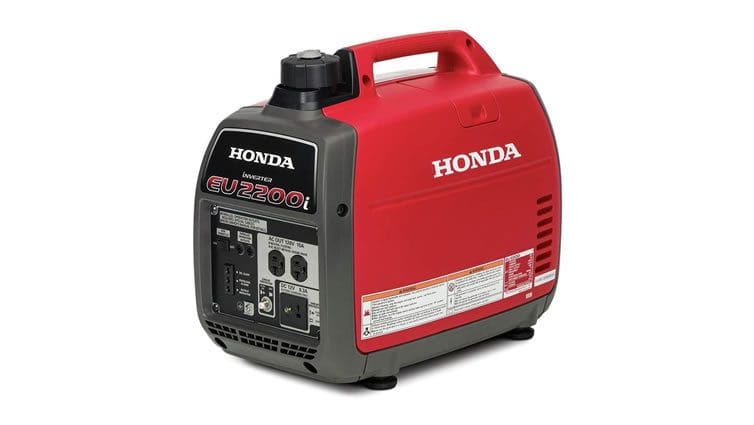
Proper Generator Placement: Keep it Away from Your Neighbors
Even the quietest generator can cause noise problems if it’s placed too close to your neighbors. When setting up your quiet RV generator, make sure to place it a good distance away from other campers, tents, and RVs. Ideally, you should aim to place the generator at least 10-15 feet away from any living areas. This allows the noise to dissipate before reaching others. You’d be surprised how much of a difference the placement can make. Just a few extra feet between your generator and the campsite can significantly reduce its impact on surrounding areas.
Consider using a sturdy table or platform to elevate the generator off the ground. This can help minimize vibrations, which contribute to noise. Also, avoid placing it near walls, fences, or anything that could amplify sound. For example, a generator near a metal RV body can cause the noise to bounce back, making it even louder. Give your quiet RV generator room to breathe, and you’ll be doing everyone around you a favor.
Use a Generator Enclosure or Noise Barrier
If you’re serious about keeping noise to a minimum, investing in a generator enclosure is a game-changer. A generator enclosure is a soundproof box that surrounds the generator, absorbing the noise it produces. These enclosures are especially effective for reducing engine noise and keeping things as quiet as possible. Many enclosures are made from durable materials like steel or heavy-duty plastic, which are excellent at blocking sound.
If an enclosure isn’t practical for your setup, you can also create a DIY noise barrier using materials like blankets, tarps, or even specially designed noise-reducing mats. These can be placed around the generator to help absorb some of the noise. While this won’t make your generator silent, it can significantly reduce its impact on your neighbors. Just remember to leave space for ventilation, as your generator still needs airflow to operate safely.
Use Your Generator During “Quiet Hours”
Most campgrounds have set quiet hours, usually during the evening and early morning when campers are trying to sleep. During these hours, many campgrounds encourage everyone to turn off loud machinery, including generators. To be considerate of others, try to use your quiet RV generator outside of these designated quiet times.
You can also plan your generator usage during times when noise will have less of an impact—perhaps when others are awake and busy with their daily activities. By sticking to reasonable hours, you’ll help ensure that everyone gets the peaceful experience they’re looking for while still being able to power your devices.
Regular Maintenance: Keeping Your Generator in Top Shape
A noisy generator might not always be the result of poor design; sometimes, it’s simply a sign that maintenance is needed. Over time, dirt and wear can cause your generator to become louder than usual. Regular maintenance is essential for keeping your quiet RV generator in top working condition. Clean the air filters, check the spark plugs, and ensure that the muffler is intact. If something’s off with your generator, it might start producing more noise than it should.
A well-maintained generator is not only quieter but also more efficient. Plus, regular maintenance can extend the life of your generator, meaning fewer repairs and replacements down the road. Taking the time to properly care for your equipment ensures that you won’t become a noise nuisance in the campground while still having access to the power you need.
Respect the Environment: Be a Responsible Camper
Ultimately, reducing noise pollution at campgrounds comes down to being a responsible camper. Just as you’re mindful of your impact on the environment, you should also be considerate of your fellow campers. Using a quiet RV generator, positioning it properly, and following campground rules will go a long way in creating a peaceful atmosphere for everyone.
While technology has made quiet RV generators more effective than ever, your personal habits and respect for others are just as important. Be aware of your surroundings, and make sure your power source is as unobtrusive as possible. By keeping the noise down, you’ll be contributing to a more enjoyable and serene camping experience for yourself and your neighbors.
In conclusion, reducing noise pollution at campgrounds doesn’t require drastic measures. By choosing the right quiet RV generator, placing it properly, maintaining it regularly, and respecting campground quiet hours, you’ll ensure that everyone enjoys the peace and quiet of nature. Whether you’re camping for a weekend getaway or a long road trip, these simple tips can make all the difference in creating a relaxing environment for all campers.
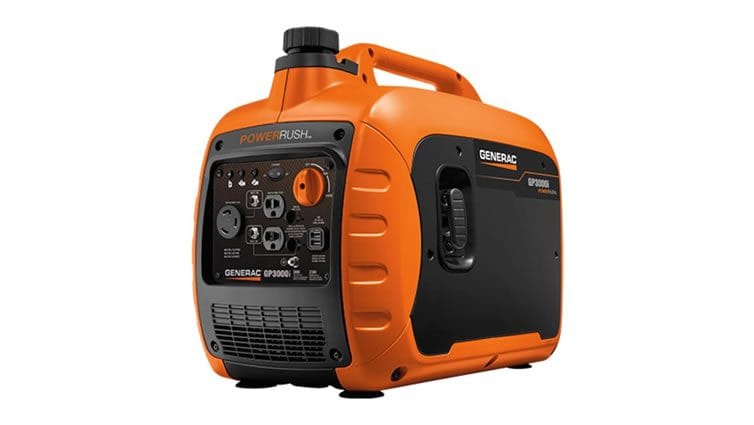
Quiet Generator Accessories to Boost Efficiency
When you’re camping in your RV, a quiet RV generator can be a lifesaver, but there are also a few accessories that can make it even better. The right accessories can boost the efficiency of your generator, keep it running smoothly, and even reduce noise levels further. Whether you’re looking to extend your generator’s life, improve fuel efficiency, or keep the noise down, there are plenty of options to enhance your experience. Let’s dive into some quiet generator accessories that will take your RV power setup to the next level.
Generator Covers: Protection and Quiet
One of the easiest ways to improve the efficiency of your quiet RV generator is by using a high-quality generator cover. While generator covers are primarily used to protect your equipment from the elements, they can also help reduce noise levels. Many of these covers are made from noise-dampening materials, which can further absorb vibrations and sound.
A well-fitted cover will shield your generator from dust, rain, and dirt, keeping the internal components clean and running efficiently. This reduces wear and tear, ensuring your generator operates at peak performance for longer periods. Additionally, the extra layer of insulation can keep the sound inside the generator, preventing it from echoing and disturbing your neighbors. Remember to look for a cover that’s designed for your specific generator model to ensure proper ventilation, as airflow is crucial to prevent overheating.
Vibration Dampeners: Cutting Down the Rattle
Vibration is one of the main culprits when it comes to generator noise. Even a quiet RV generator can make a lot of noise if it’s vibrating against hard surfaces. Vibration dampeners are a fantastic accessory that helps to minimize this unwanted noise. These dampeners are made from materials like rubber or foam and are placed underneath the generator to absorb the vibrations that would otherwise be transmitted to the ground or nearby surfaces.
By installing vibration dampeners, you can make your generator even quieter, which is especially important in campgrounds where peace and quiet are prized. They’re easy to install and can make a noticeable difference in how your generator sounds. These small yet effective accessories can help prevent vibrations from transferring to your RV or campsite, keeping things calm and serene.
Fuel Stabilizers: Boost Efficiency and Longevity
If you’re planning on using your quiet RV generator seasonally, a fuel stabilizer is an excellent accessory to consider. Fuel stabilizers are added to your generator’s gasoline to help prevent it from degrading over time, especially when the generator is stored for long periods. Without a stabilizer, gasoline can turn stale, which may cause engine problems, reduce fuel efficiency, and increase emissions.
By using a fuel stabilizer, you ensure that your generator runs as efficiently as possible when you need it the most. The stabilized fuel allows the engine to run smoothly, reducing the chances of stalling or rough idling. Additionally, it helps your generator start up more easily, which is especially helpful if you’ve had it in storage for a while. This simple addition not only improves performance but also extends the life of your generator, keeping it running quietly and reliably for years.
Quiet Exhaust Kits: Less Noise, More Power
For those who want to take their quiet RV generator to the next level, a quiet exhaust kit is a game-changer. These kits are designed to reduce the noise created by your generator’s exhaust system, one of the main contributors to generator noise. A good quiet exhaust kit will direct the noise away from your camping area and minimize the sound produced by the exhaust gases.
The beauty of a quiet exhaust kit is that it doesn’t just make your generator quieter; it can also help improve the generator’s performance by allowing it to run more efficiently. By reducing exhaust backpressure, these kits can make your engine run smoother and consume less fuel. As a bonus, many exhaust kits are designed to be durable and resistant to corrosion, ensuring that they last through harsh weather conditions and frequent use.
Parallel Cables: Powering Multiple Units Quietly
If you’re planning on running multiple devices or appliances that require more power than a single quiet RV generator can supply, consider using parallel cables. Parallel cables allow you to connect two smaller generators together to increase the wattage while keeping the noise level low. This is a great option if you want to stay within the realm of quiet generators but still need more power for things like air conditioning or extra appliances.
By linking two smaller generators, you can split the load between them, so each one runs more efficiently and quietly. It also provides redundancy, so if one generator malfunctions, you have a backup. Plus, many parallel cables are designed to work seamlessly with compatible inverter generators, making it easy to create a custom power solution that suits your needs without the loud noise typically associated with larger generators.
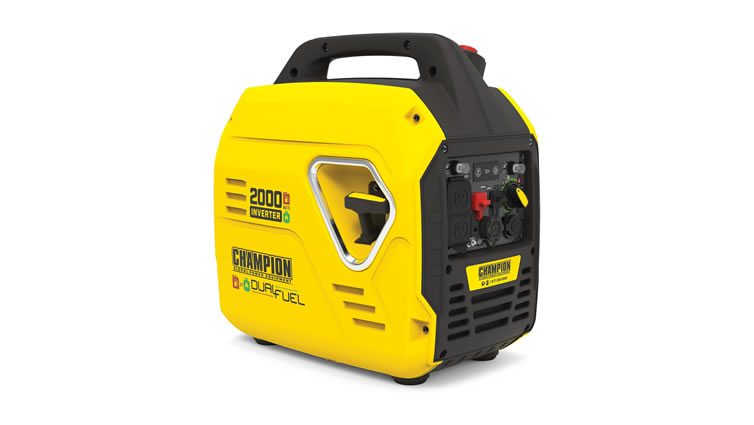
Solar Panels: Harnessing Nature’s Power
While not directly linked to the generator itself, adding a solar power system to your RV setup can drastically reduce your reliance on a generator. By installing solar panels, you can power everything from lights to small electronics without ever having to turn on your generator. This can significantly cut down on generator run time, reducing both noise and fuel consumption.
Solar panels are especially useful for those who prefer staying in quieter, more remote areas where generator noise could disrupt the natural ambiance. When combined with a quiet RV generator, solar panels provide a more sustainable and quieter energy solution. Plus, they’re environmentally friendly, helping you reduce your carbon footprint while camping. It’s a win-win situation—powering your RV with clean energy while keeping things as quiet as possible.
Final Thoughts
Boosting the efficiency of your quiet RV generator with the right accessories can make your camping experience more enjoyable and less disruptive. From vibration dampeners and fuel stabilizers to quiet exhaust kits and solar panels, these simple additions can help you get the most out of your generator while keeping the noise levels to a minimum. By investing in a few quality accessories, you’ll ensure that your quiet RV generator performs optimally, provides reliable power, and contributes to a peaceful campground atmosphere. After all, the goal of RV camping is to relax, enjoy nature, and make the most of your time on the road—all without unnecessary noise.

